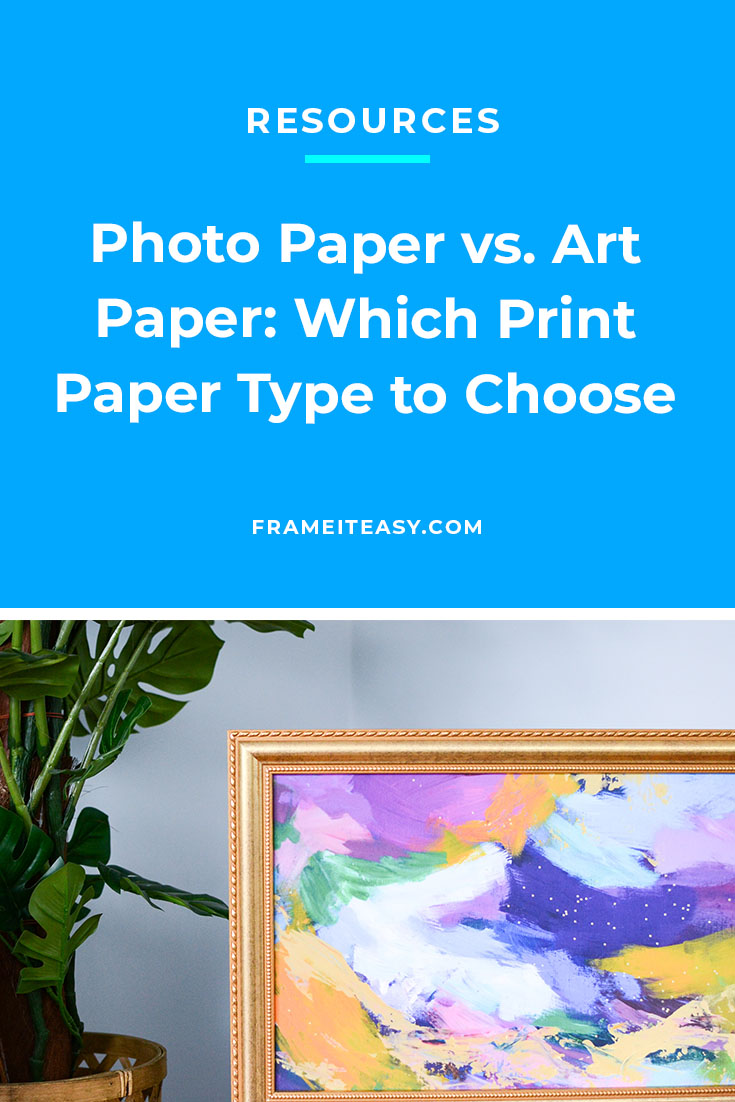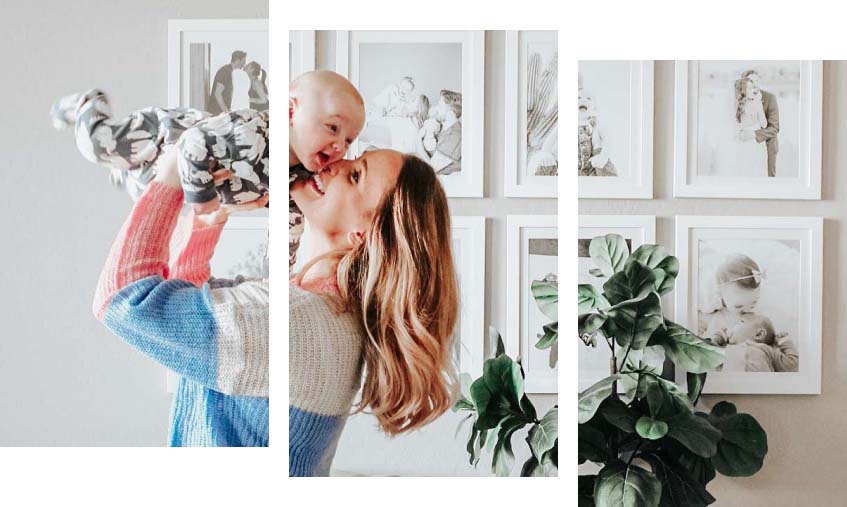Here at Frame It Easy we have three paper options: photo paper, art paper, and Giclée paper. We have always believed that by using premium, quality materials and state-of-the-art equipment we are able to provide you with not just a beautiful looking frame, but one that will retain its beauty for years to come. And making sure what you want to display inside that frame has a lasting visual impact is just as important. We’d like to introduce you to our three print paper types and why you might choose each for your next custom framing project!
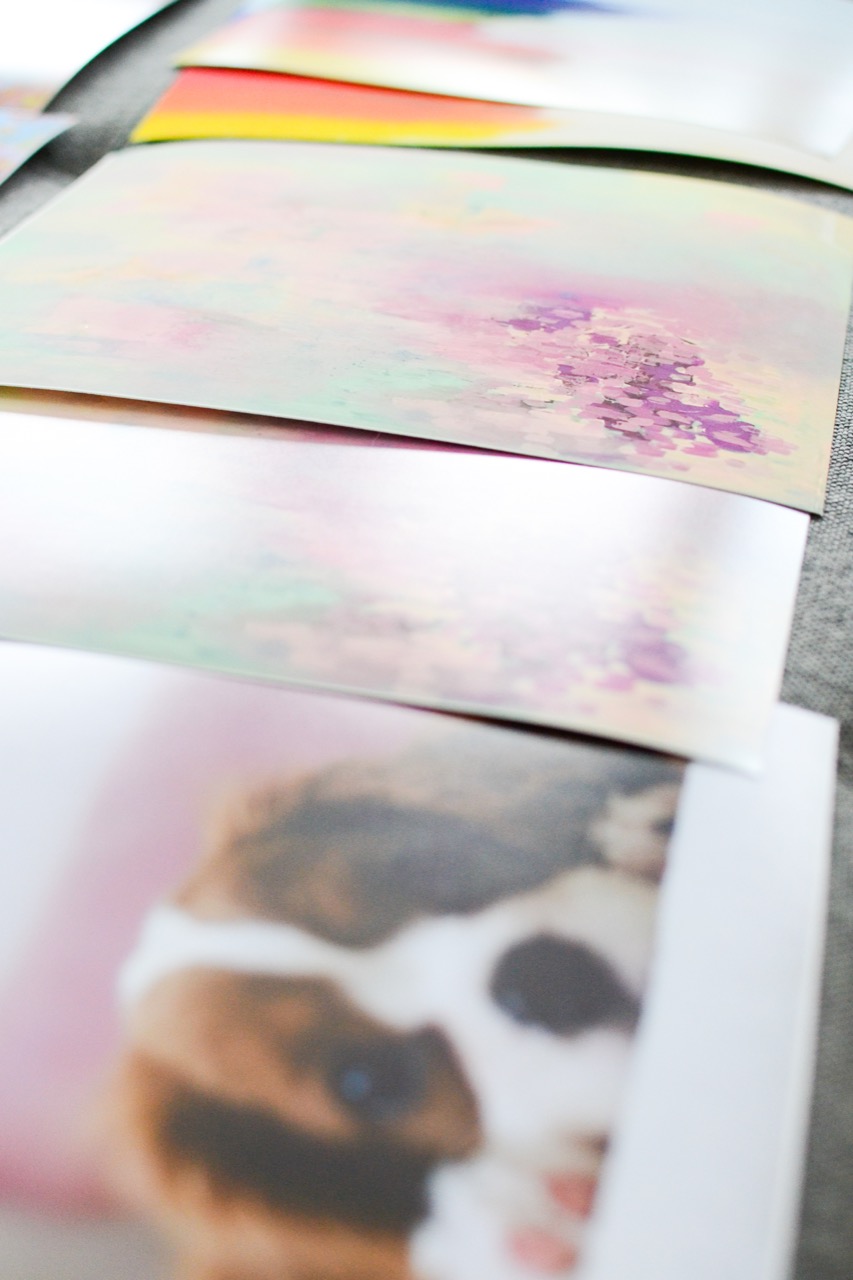
Paper Types for Printing
In Step One of our Frame Designer — after you have entered your art dimensions — you can then choose print my photo/artwork and simply upload your digital file. When your upload is complete you will then be given the choice of having us print on Photo Paper, Art Paper, or Giclée Paper.
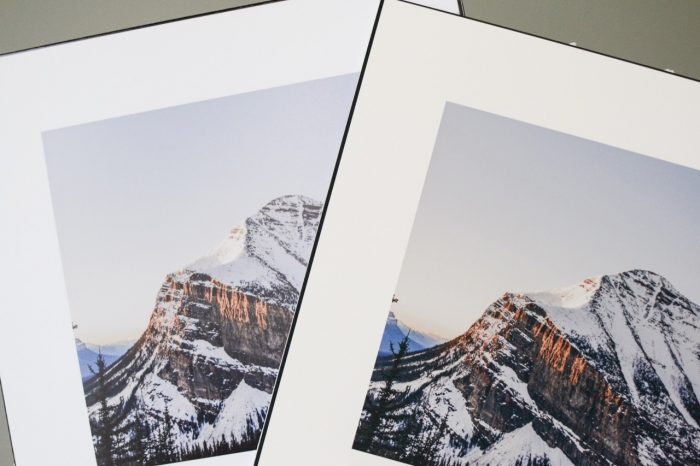
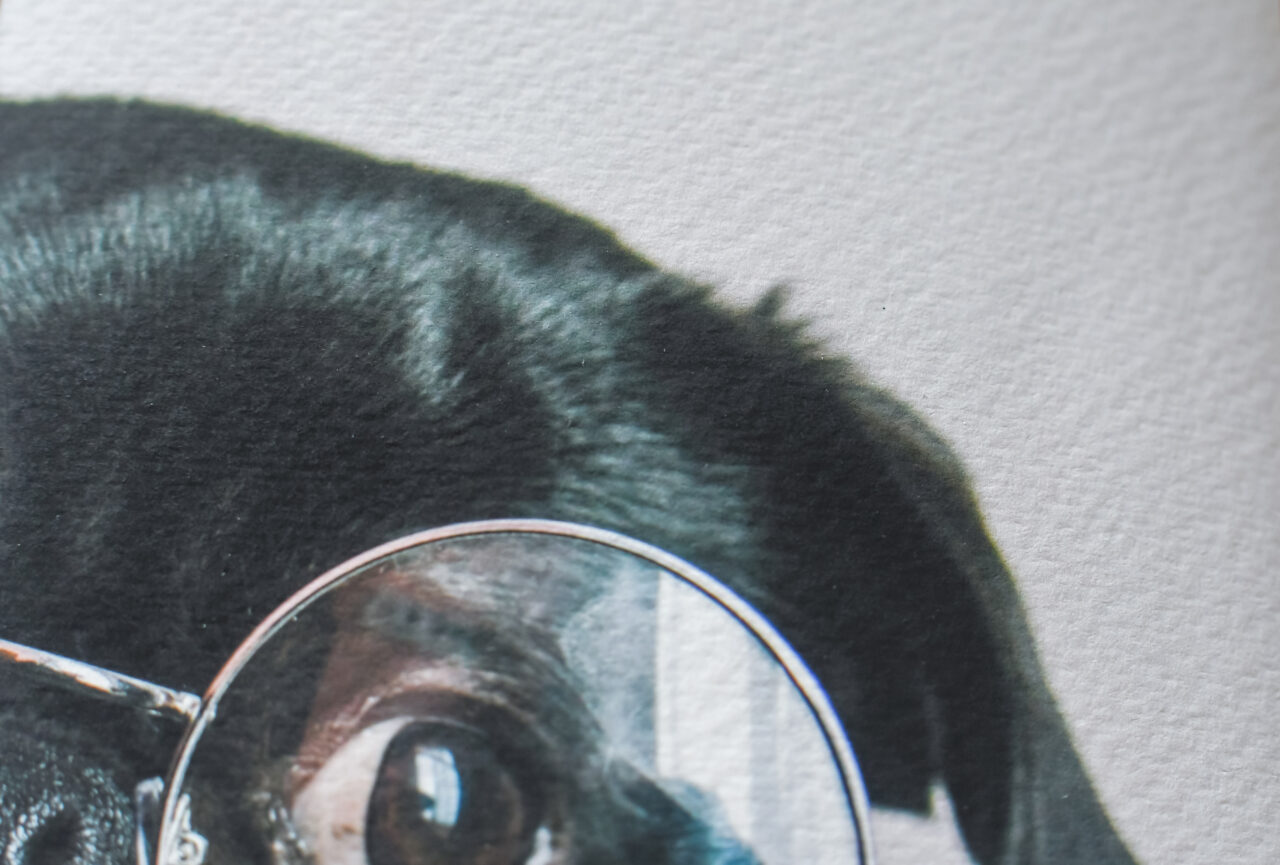
While we’ll explain the differences between the three below, rest assured that no matter which paper you choose, our print lab will use top-of-the-line, large-format printers using archival-grade ink and acid-free paper. All paper types will produce a great-looking print!
Photo Paper
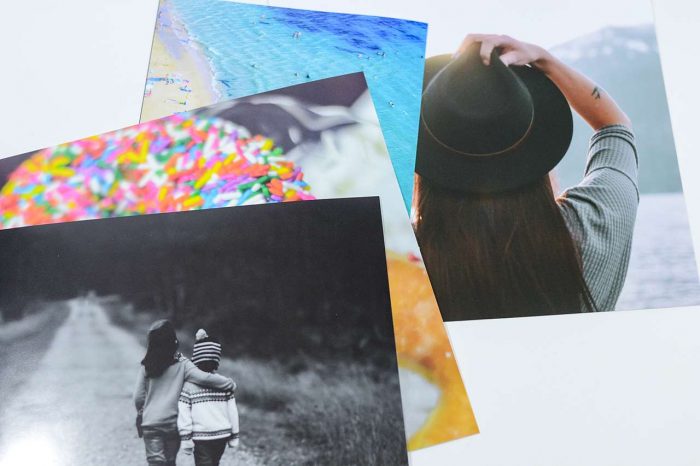
Our Photo Paper is a semi-matte, bright white paper with a slight gloss/luster to it. It has a smooth surface and subtle sheen that will bring a brightness and richness to prints.
Photo paper is perfect for photographs and text-heavy images, as well as most general, all-purpose uses.
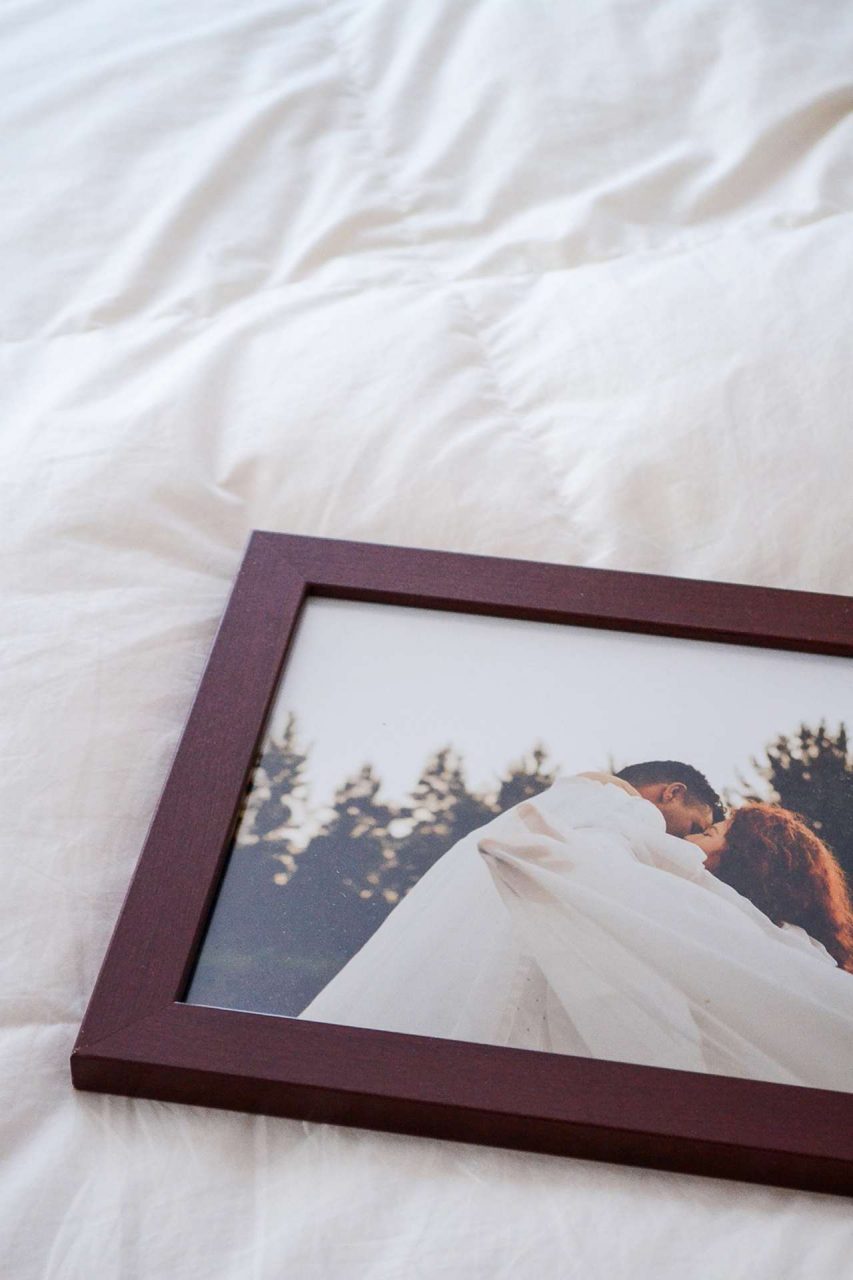
When viewed in direct light you can notice the luster/sheen on the Photo Paper, but don’t be scared — it is not a high gloss and will not affect viewing clarity once added into a frame.
Art Paper
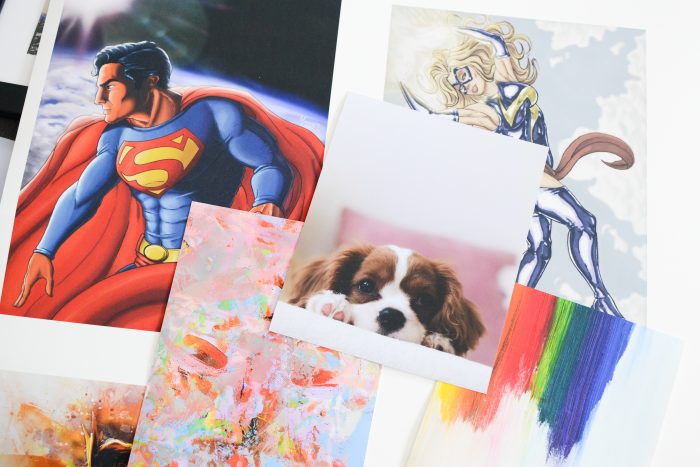
Our Art Paper is a cotton, natural white paper that is matte — it has no gloss or luster to it. It has the slightest warmth and a semi-smooth surface that will bring elegance and nuance to prints.
Art Paper is best for artwork reproductions and/or digital graphics.
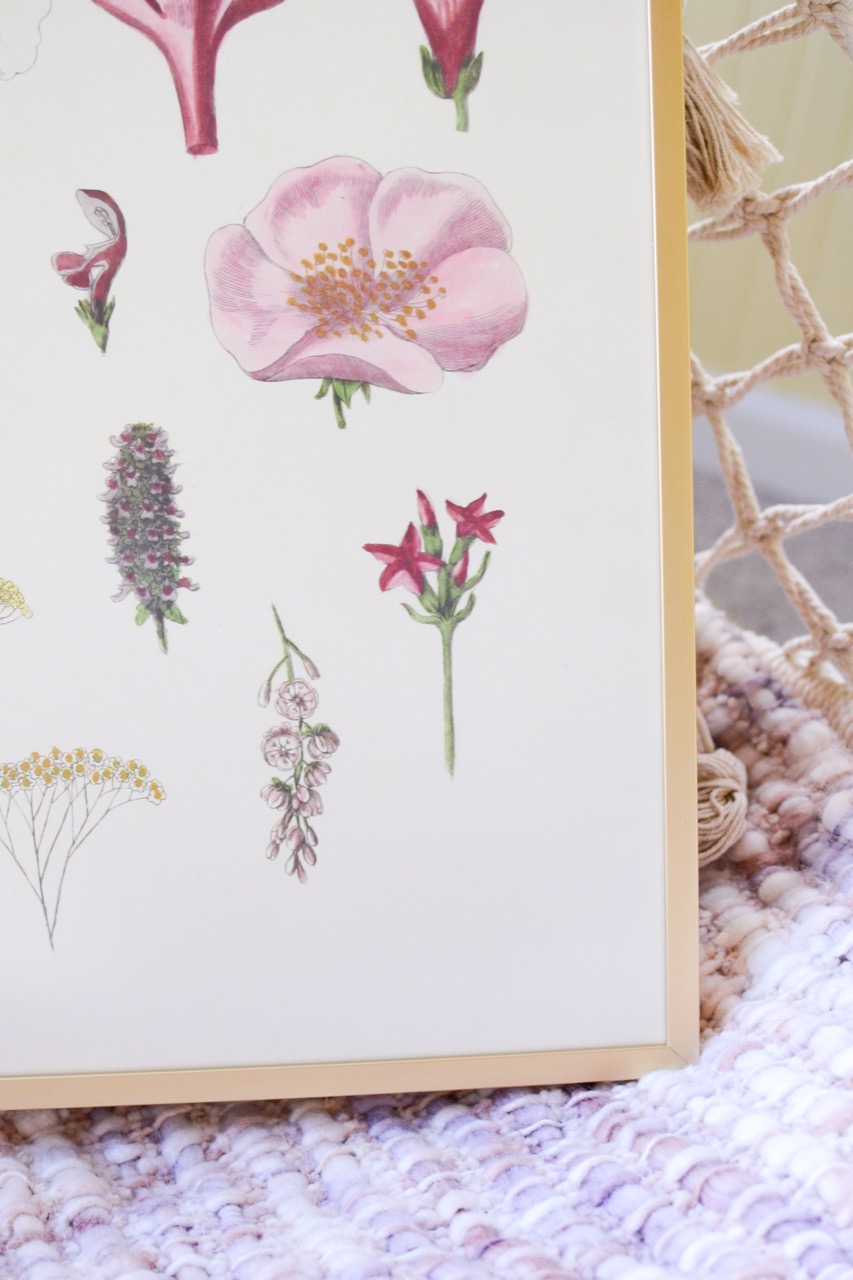
Our Art Paper also contains no optical brighteners (OBAs) which are often added to paper to make it appear “whiter” to the eye. These brighteners work by absorbing UV light and re-emitting it in the blue region. Unfortunately, OBAs can break down over time allowing what is commonly called “yellowing” to occur, so you never have to worry about discoloring over time.
Made using refined, 100% cotton fiber (for our customers with specific technical requirements, both ISO 9706 and ANSI Z 39.48-1992 certified!) to discerning eyes its smooth nature makes a subtle difference in your artwork.
P.S. Art print paper looks especially nice with a Non-Glare Acrylic Cover (no matting) to showcase textural detail.

Giclée Paper
Our Giclée Paper (pronounced “zhee-klay”) is a cotton, heavyweight fine art paper that is fully matte and has a slight texture to it. There are no optical brighteners, and is both acid free and lignin free. It has a gentle warmth and a semi-smooth texture that enhances the intricacy and richness of giclée prints. Great for fine art reproductions that are of conservation and museum quality. A museum curator would absolutely be comfortable putting this paper on display! The recommended DPI is 300+ and its perfect matting match is White Sail.
Note: A giclée print is not technically giclée unless it is 300DPI or higher. If an image is uploaded with at least 300DPI, combined with our printing process, this paper creates a result that meets high quality giclée printing standards.
Print Quality
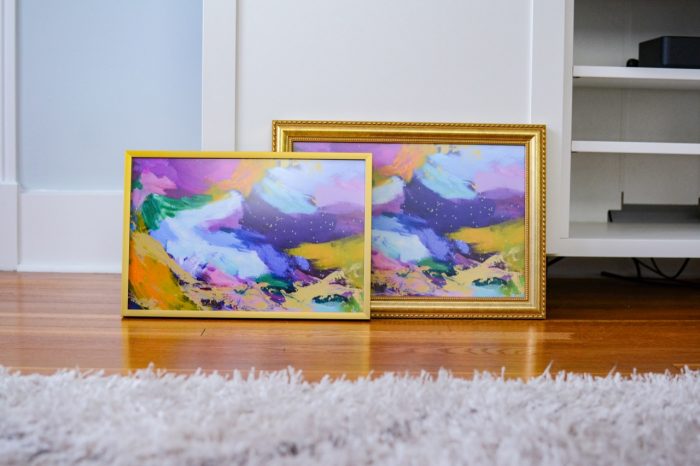
(Both with Non-Glare Acrylic Cover)
As we mentioned, no matter which paper you choose, you are sure to get a quality print (as long as your uploaded image is of a high enough resolution!)
For our technical customers, we print at up to 1200×1200 DPI and stay as true to your uploaded file as possible — we never resample or perform destructive edits to your image, and we maintain the exact profile and colorspace embedded within your file and never remove it or add our own.
For more on prints and printing in general, be sure to check out How to Format Photos for Online Framing and Matting.
Choosing Art Paper vs. Photo Paper vs. Giclée Paper
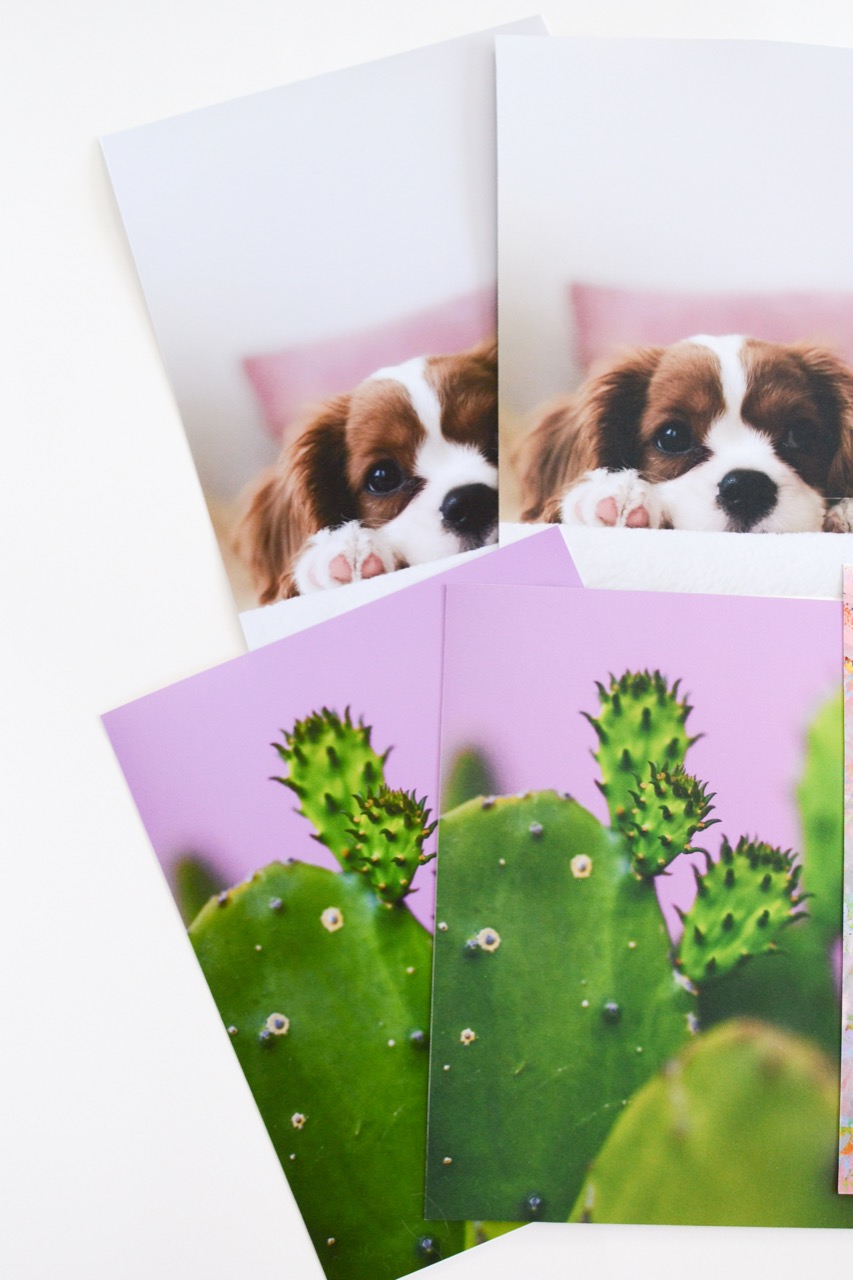
If all papers are a great choice, how do you choose which is best for your frame?
While it ultimately comes down to personal preference, as a very basic rule you’ll generally want to choose:
- Photo Paper if you have a photograph
- Art Paper if you have a digital art reproduction (painting, illustration, etc.)
- Giclée Paper is best for fine art reproductions that are of conservation and museum quality
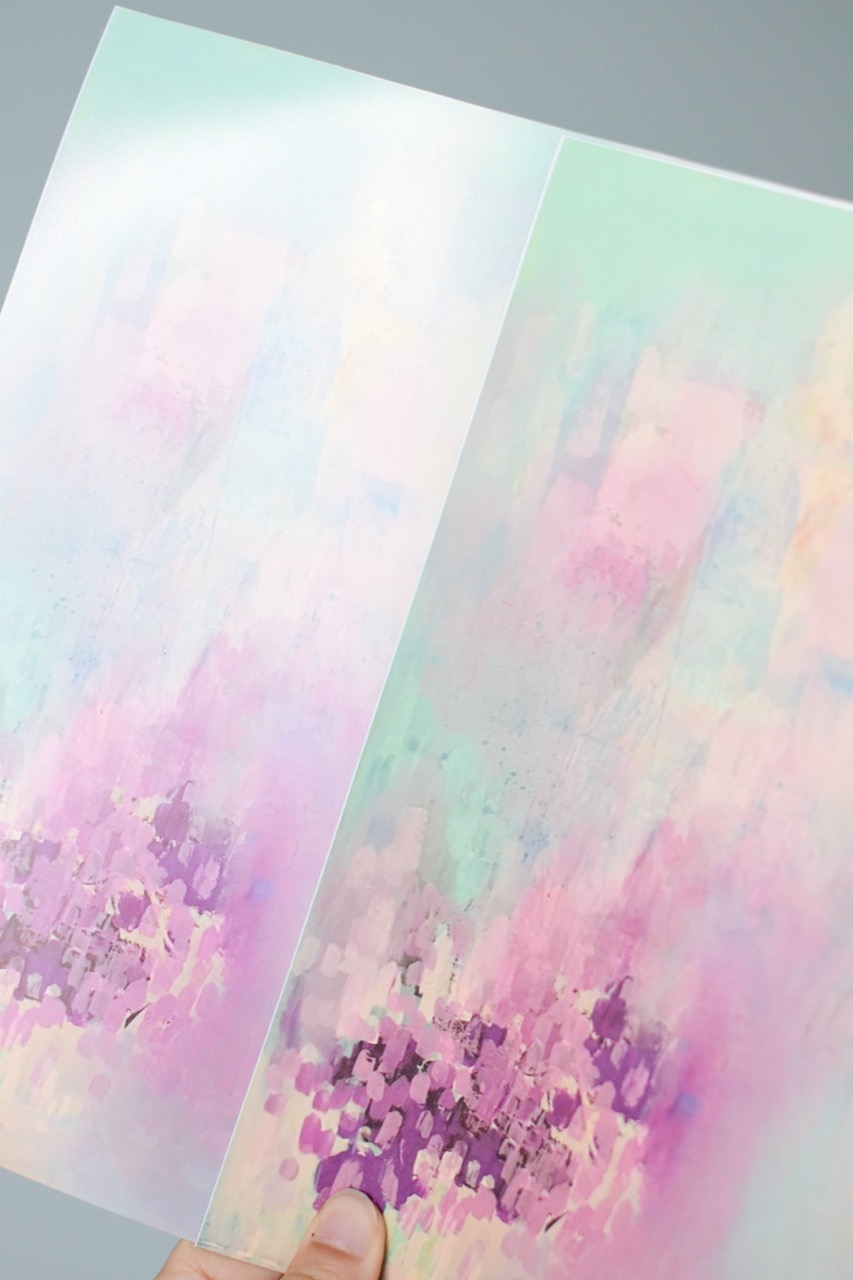
(Both angled in direct sunlight to show the difference in sheen)
The main optical differences between the three paper types are A) Art Paper and Giclée Paper are completely matte whereas Photo Paper has a sheen to it and B) Art Paper and Giclée Paper have a very subtle warmth to their base natural white coloring, meaning your print will overall take on a warmer tone. (The warmth is subtle but still worth noting.)
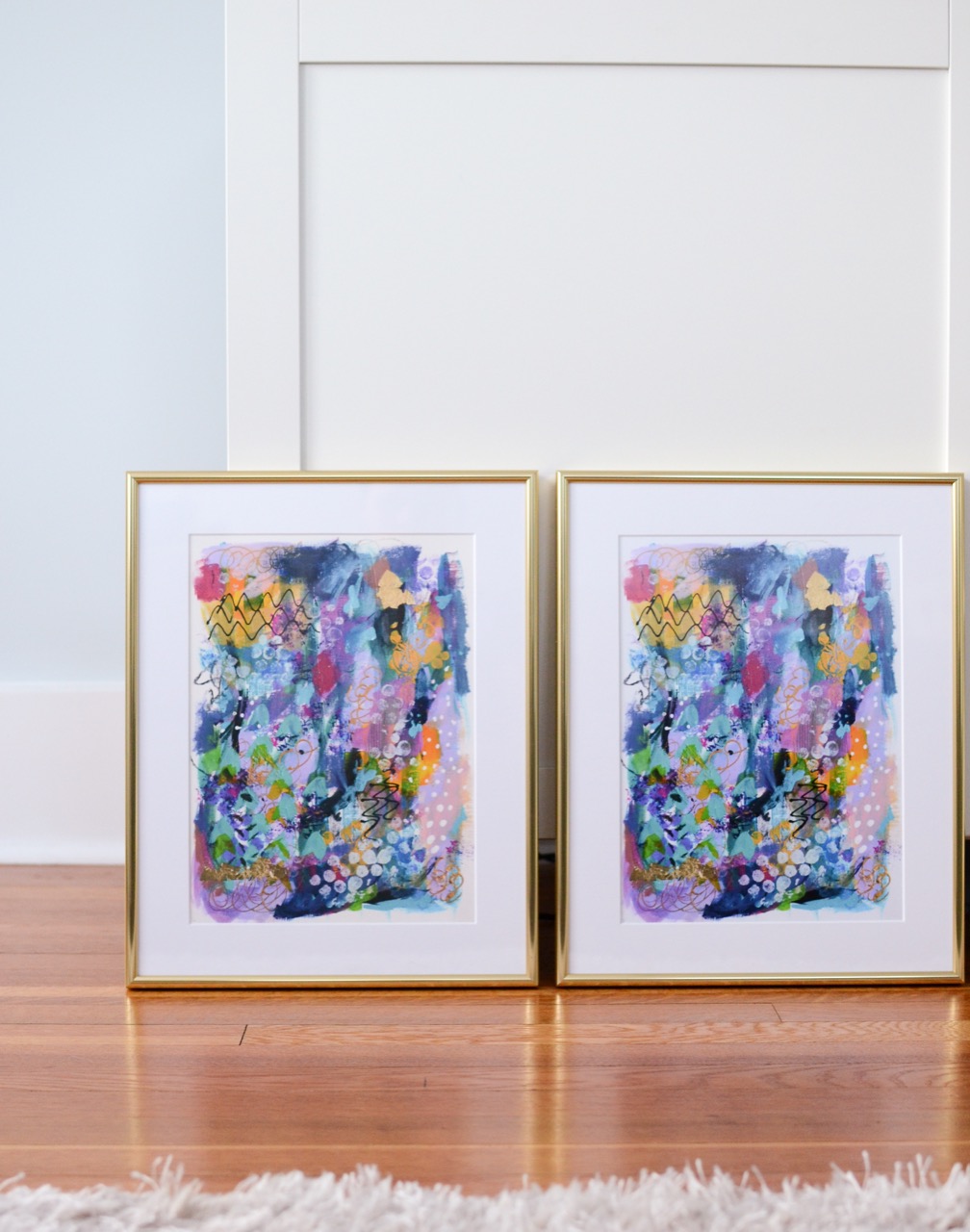
(Both with Matting and Clear Acrylic Cover)
Photo Paper is also slightly more affordable, though the price increase for Art Paper is not very significant. (For example, changing an 11″x14″ print from Photo Paper to Art paper results in less than $1.00 difference. The Giclée Paper is about a $3.00+ increase.)
Print Perfect
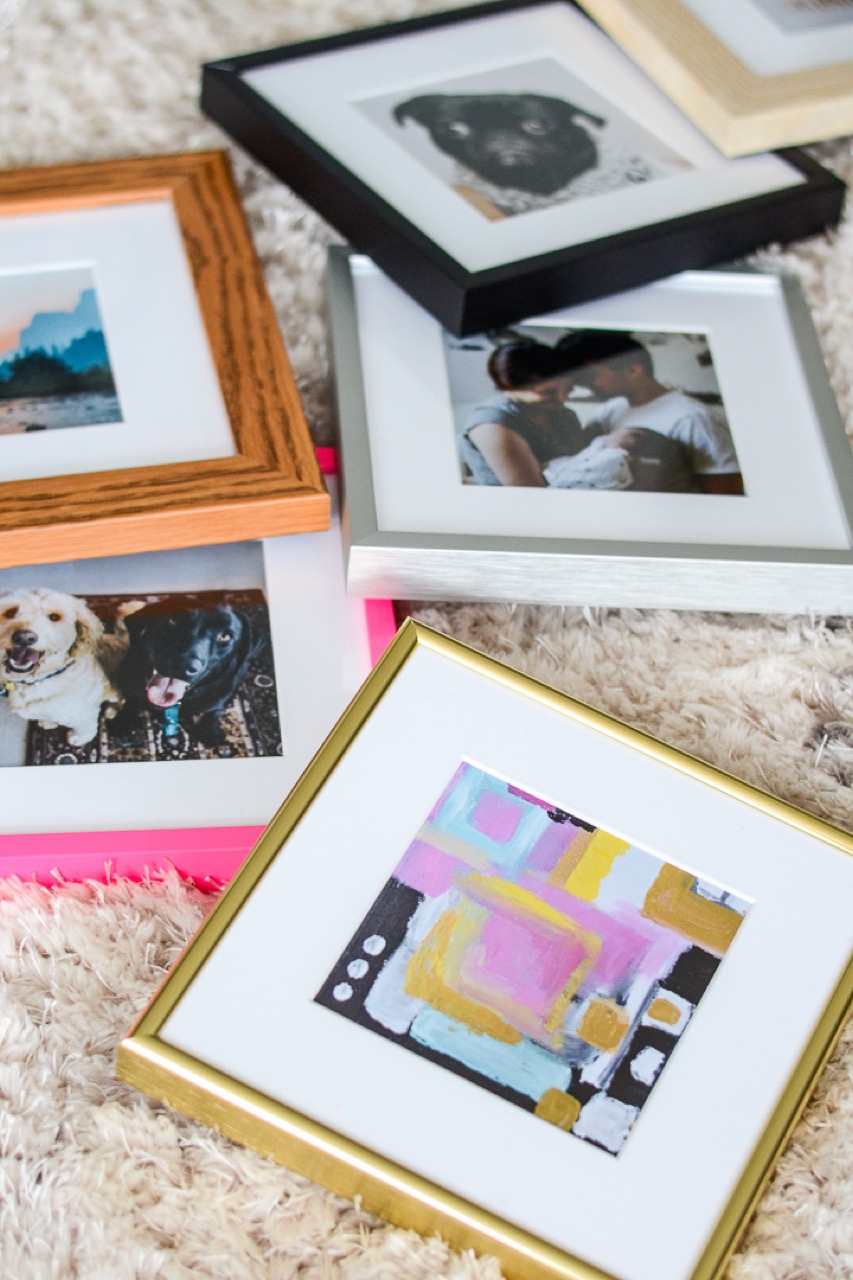
Whichever paper you choose, we are sure when you see the quality of your uploaded photographs, artwork, and images, you will be a repeat customer of Frame It Easy for years to come. Different works and styles may require different paper types, so feel free to experiment and try new things to see what you prefer best.
To sum up a few of the key differences in paper types, check out this handy chart:
Photo Paper vs. Art Paper vs. and Giclée Paper: Key Differences
| Photo Paper | Art Paper | Giclée Paper | |
| Finish | Semi-Matte with slight gloss/luster/sheen | Completely Matte | Completely Matte |
| Texture | Smooth | Smooth | Semi-Smooth |
| Tone | Bright White | Natural White (Has a hint of warmth) | Natural White (Has a hint of warmth) |
| Best For | Photographs, text-heavy designs | Art reproductions (paintings, illustrations, digital art) | Fine art reproductions that are of conservation and museum quality |
| Cost | Most affordable | Slightly more expensive (but not significantly so) | Slightly more expensive |
| Best Matting Match | Smooth White | Smooth White | White Sail |
And to see some additional examples/comparisons, check out this video:
P.S. Don’t forget to send us pictures once you receive your brand-new framed prints — we can’t wait to see!
